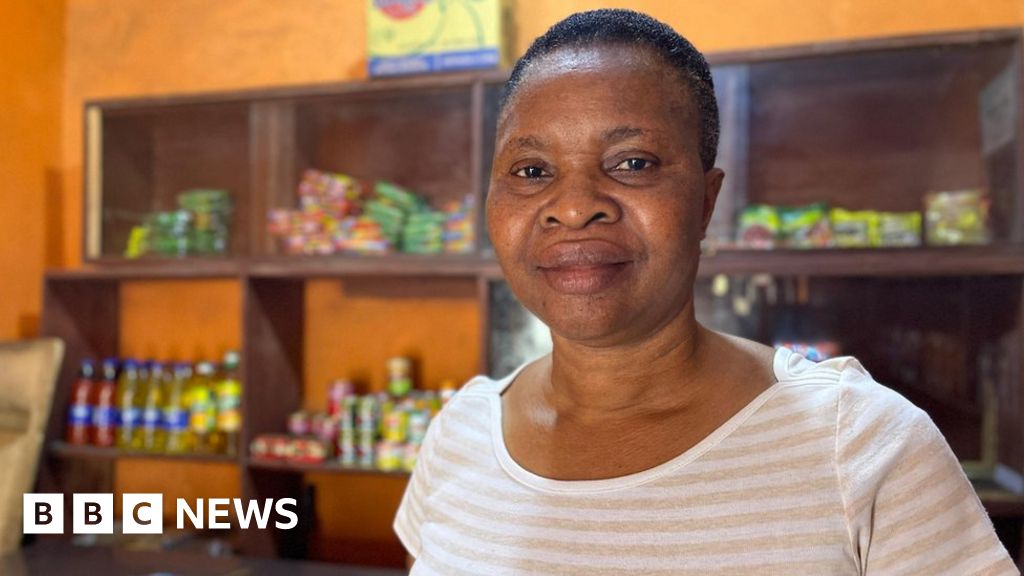Arinola Omolayo owns a frozen food store in Ogba, a suburb of Lagos, Nigeria’s commercial nerve centre, where she sells mostly imported chicken, fish and turkey.
She says she used to be happy coming to the shop, “but now I feel reluctant”.
The reason is the soaring price of food. Frozen chicken now costs about 3,400 naira ($4; £3.50) per kilo – an increase of more than 26% in the past three months.
The reason is the soaring price of food. Frozen chicken now costs about 3,400 naira ($4; £3.50) per kilo – an increase of more than 26% in the past three months.
Her suppliers blame the increase in the US dollar for the price rises, she says, adding it has made her goods very difficult to sell.
Food, transport and commodity prices in Nigeria have been forced higher by a fall in the naira – which has caused a spike in foreign exchange rates and driven up inflation.
Nigeria’s not alone. Most Sub-Saharan African currencies are getting weaker against other global trading currencies like the pound sterling and the US dollar, resulting in the loss of value and purchasing power of these local currencies on the continent.
In October, the World Bank published a report in which it said the currencies in Nigeria and Angola, Africa’s biggest oil producers, were the two worst performing on the continent.
Arinola Omolayo owns a frozen food store in Ogba, a suburb of Lagos, Nigeria’s commercial nerve centre, where she sells mostly imported chicken, fish and turkey.
The reason is the soaring price of food. Frozen chicken now costs about 3,400 naira ($4; £3.50) per kilo – an increase of more than 26% in the past three months.
She says she used to be happy coming to the shop, “but now I feel reluctant”.
Her suppliers blame the increase in the US dollar for the price rises, she says, adding it has made her goods very difficult to sell.
The reason is the soaring price of food. Frozen chicken now costs about 3,400 naira ($4; £3.50) per kilo – an increase of more than 26% in the past three months.
The reason is the soaring price of food. Frozen chicken now costs about 3,400 naira ($4; £3.50) per kilo – an increase of more than 26% in the past three months.
Her suppliers blame the increase in the US dollar for the price rises, she says, adding it has made her goods very difficult to sell.
Food, transport and commodity prices in Nigeria have been forced higher by a fall in the naira – which has caused a spike in foreign exchange rates and driven up inflation.
Nigeria’s not alone. Most Sub-Saharan African currencies are getting weaker against other global trading currencies like the pound sterling and the US dollar, resulting in the loss of value and purchasing power of these local currencies on the continent.
In October, the World Bank published a report in which it said the currencies in Nigeria and Angola, Africa’s biggest oil producers, were the two worst performing on the continent.
#Weak #currencies #force #cost #living #SubSaharan #Africa
Note:- (Not all news on the site expresses the point of view of the site, but we transmit this news automatically and translate it through programmatic technology on the site and not from a human editor. The content is auto-generated from a syndicated feed.))



